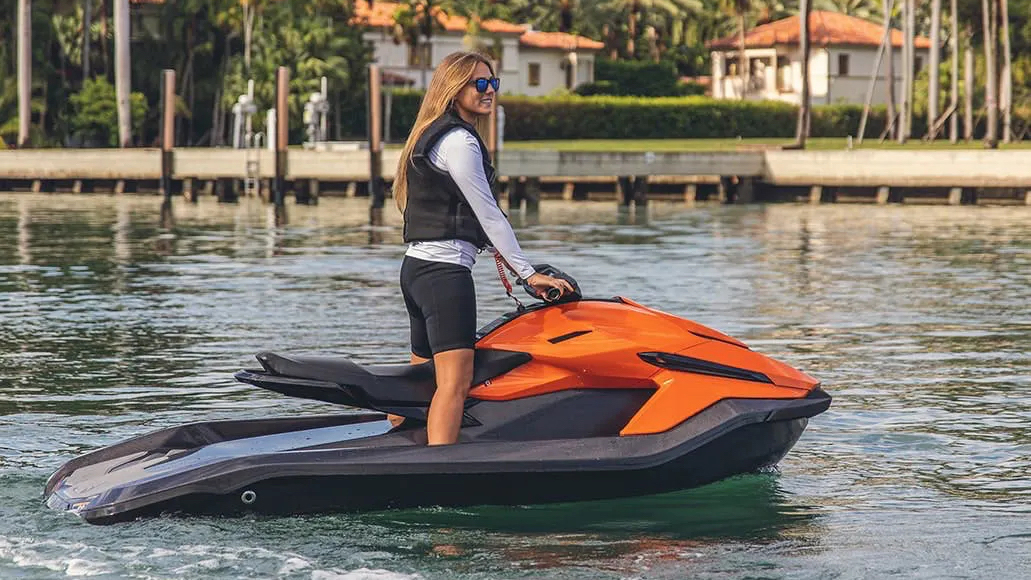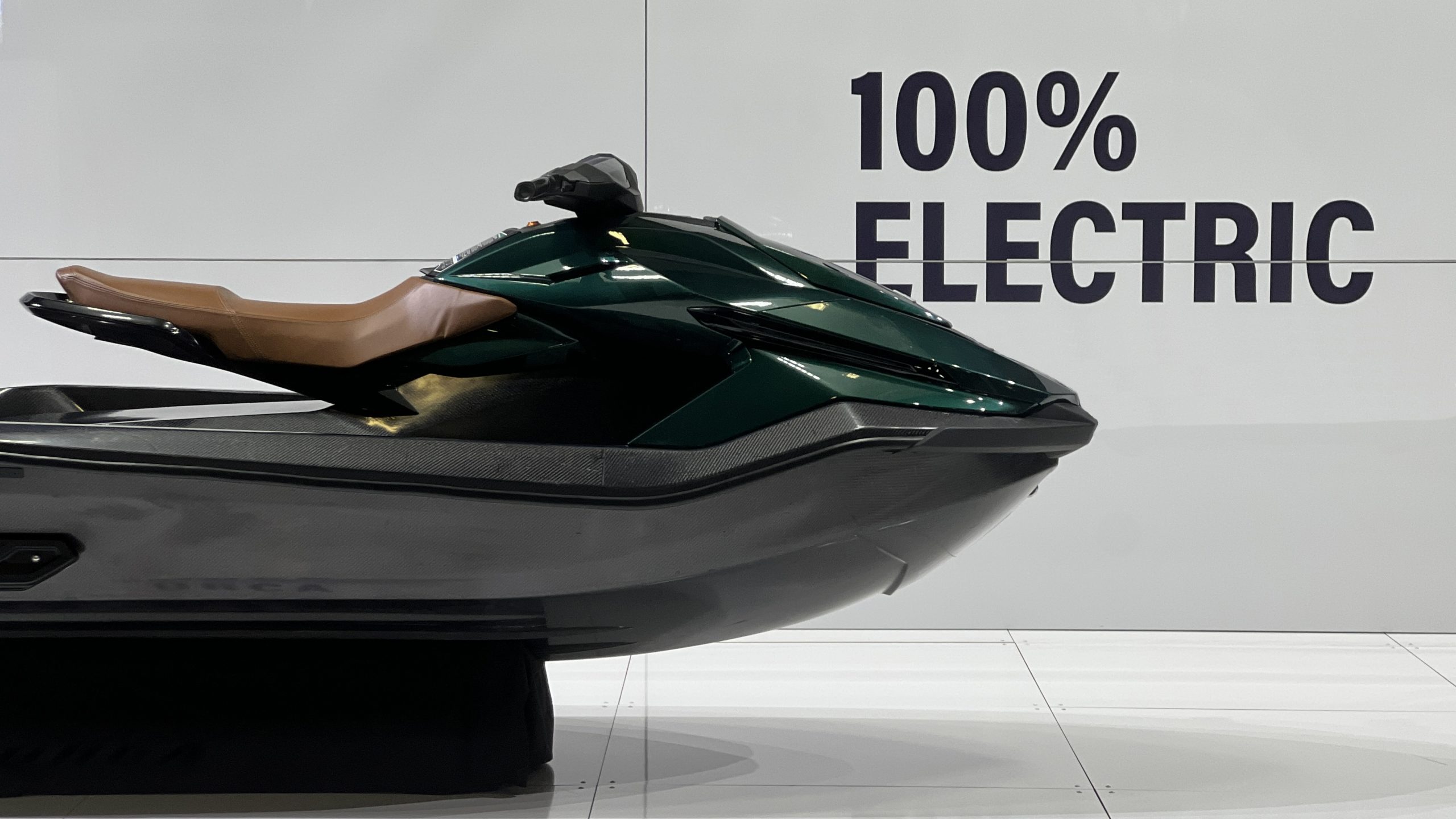EXCLUSIVE
The Taiga Orca electric Jet Ski is go for Australia – and the first shipment is already on the water and on its way Down Under, ahead of the first customer deliveries in the coming weeks.
Australian buyers who placed a deposit at last year’s Sydney Boat Show – a little more than a year ago – are at the front of the queue.
They will be among the first in the world to own a Taiga electric Jet Ski, which has sold in limited numbers in North America as production ramped up over the past two years.
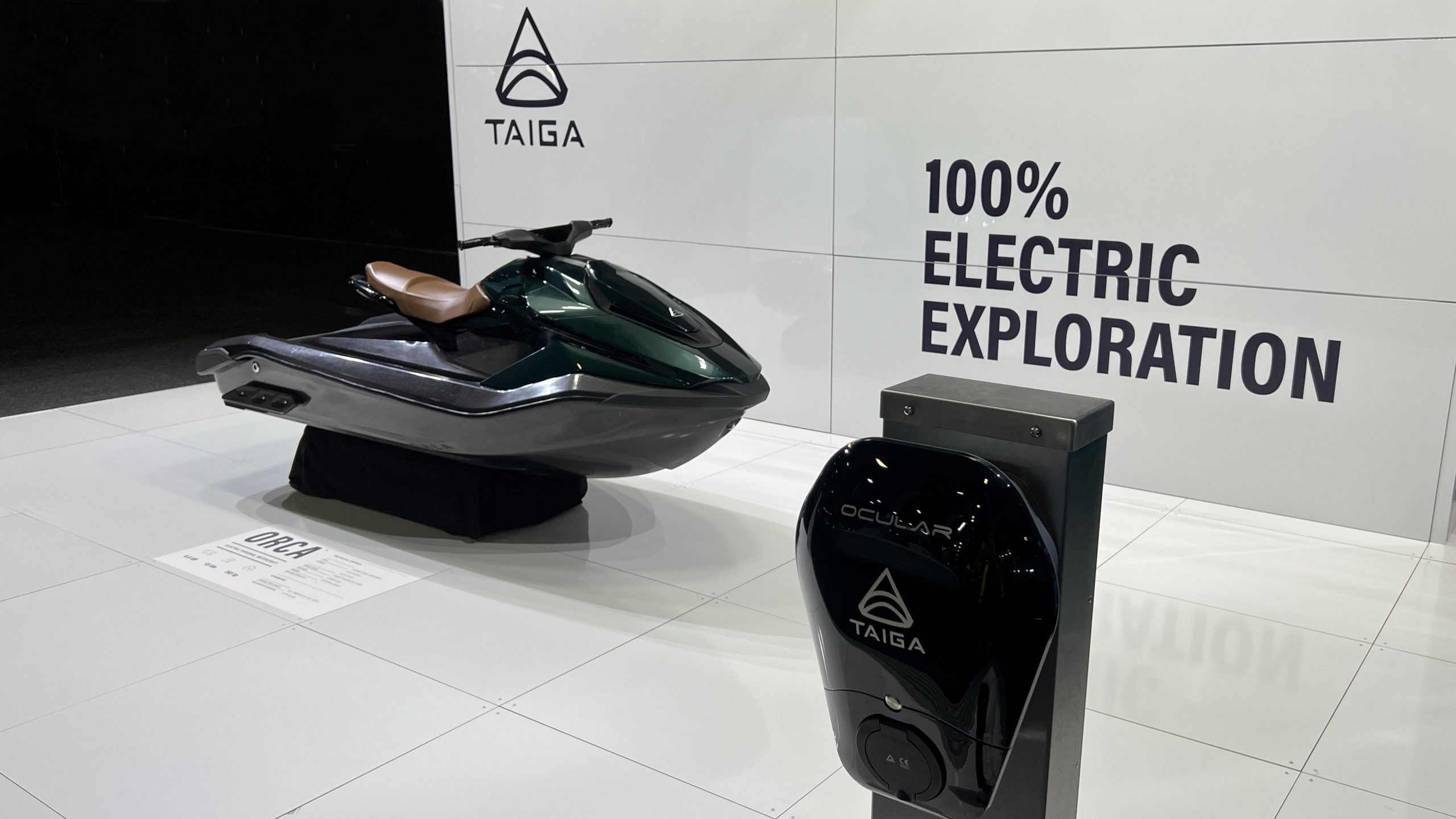
The local distributor of the Taiga electric Jet Ski was forced to delay the rollout of the revolutionary new model in Australia after production interruptions and shipping bottlenecks were triggered by the global pandemic.
But the local distributor for the Taiga electric Jet Ski – industry veteran Matt Ng – now says it is all systems go and the company will start contacting customers in the order deposits were placed.
“We’re extremely grateful for the patience of our customers and the support we have received from Taiga to bring the first mass-produced electric Jet Ski to Australia,” Matt Ng told Watercraft Zone at the 2023 Sydney Boat Show.
“This craft is the first of its type to be sold locally and Taiga wanted to make sure everything was perfect before they began shipping units to Australia.”
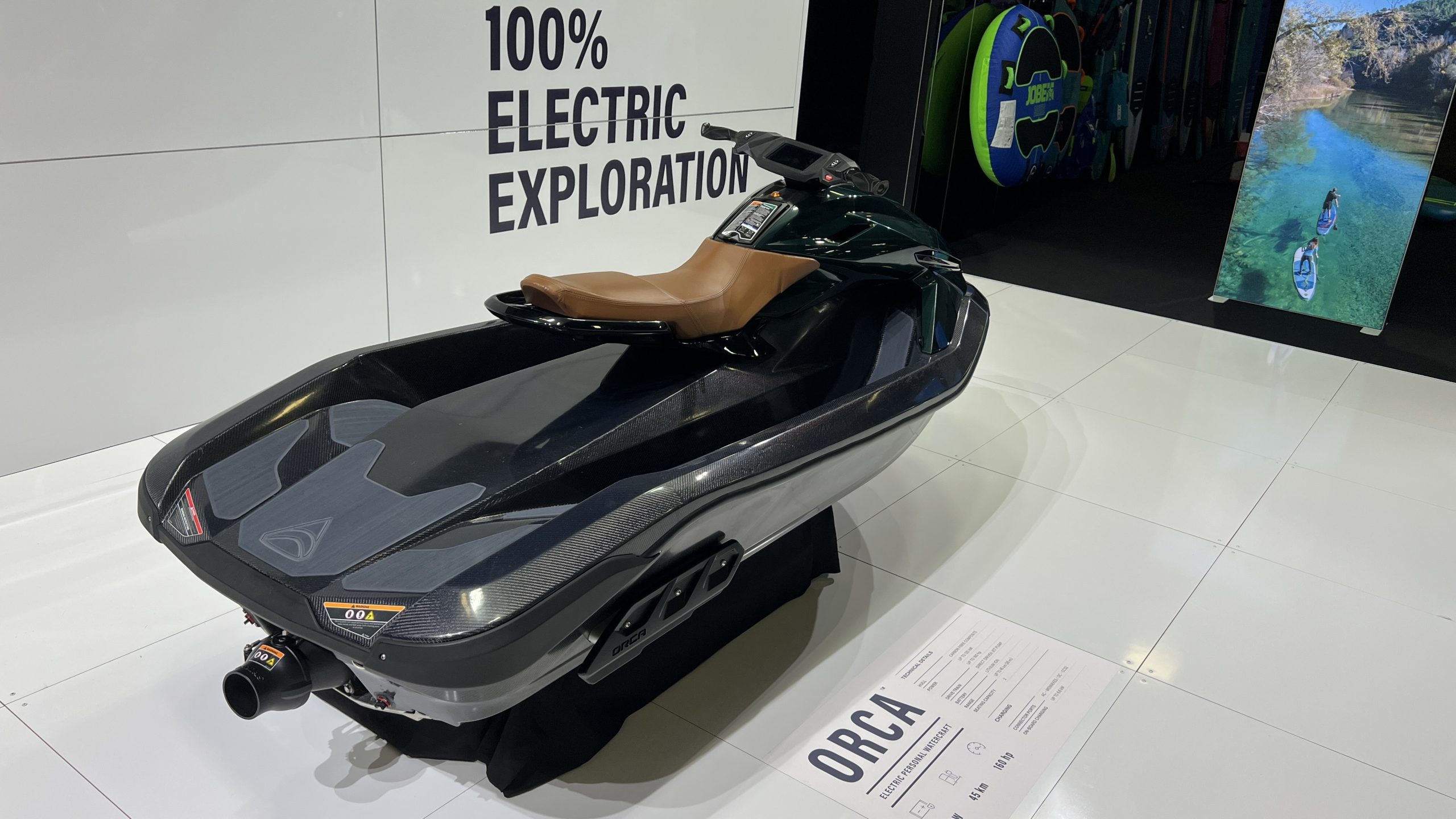
Taiga made a surprise debut in Australia at last year’s Sydney Boat Show.
The Canadian manufacturer air-freighted a carbon-fibre display model to Australia to canvass local interest.
Approximately 50 examples of the Taiga Orca electric Jet Ski were reportedly delivered to customers in Canada and the US late last year – according to the company’s most recent quarterly financial statements.
And the company has released photos of Taiga Orca electric Jet Skis during the final stages of production.
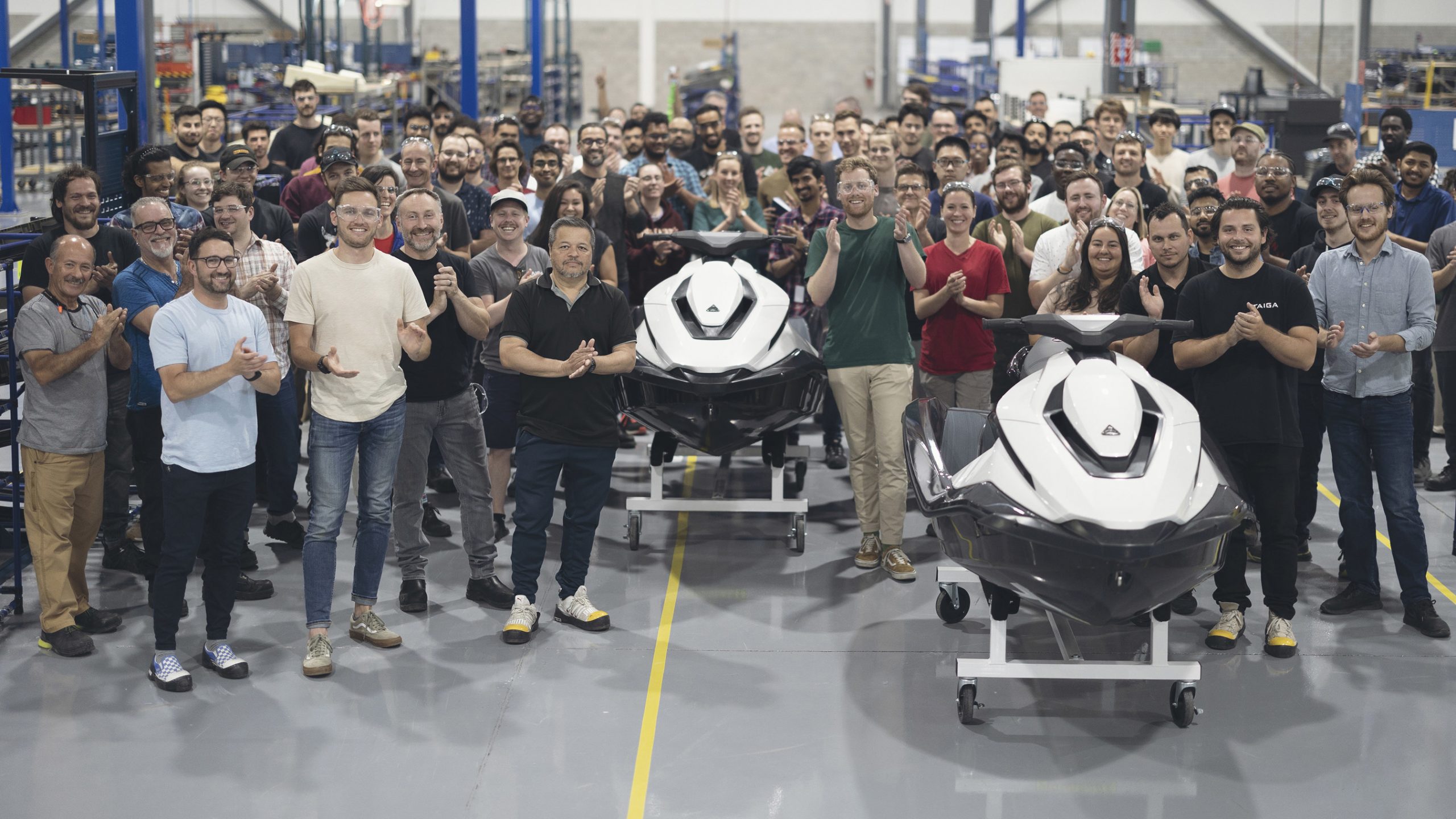
Watercraft Zone understands about two-dozen customers in Australia have so far placed $US1000 deposits for a Taiga electric Jet Ski and were given an estimated delivery of some time in 2023.
A further 300 customers in Australia are understood to have registered an expression of interest in the Taiga Orca Jet Ski for a test ride when demonstration models become available locally.
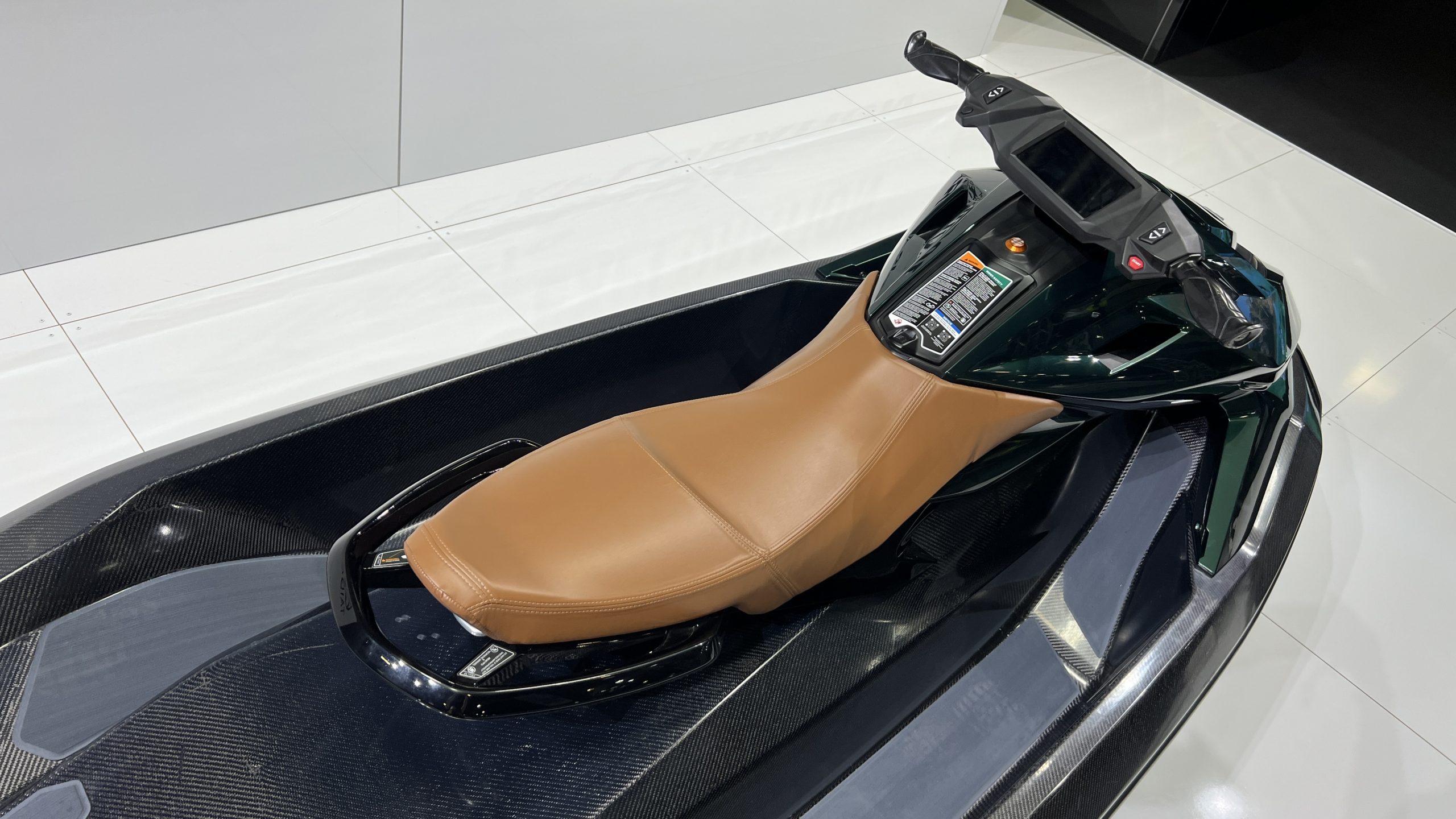
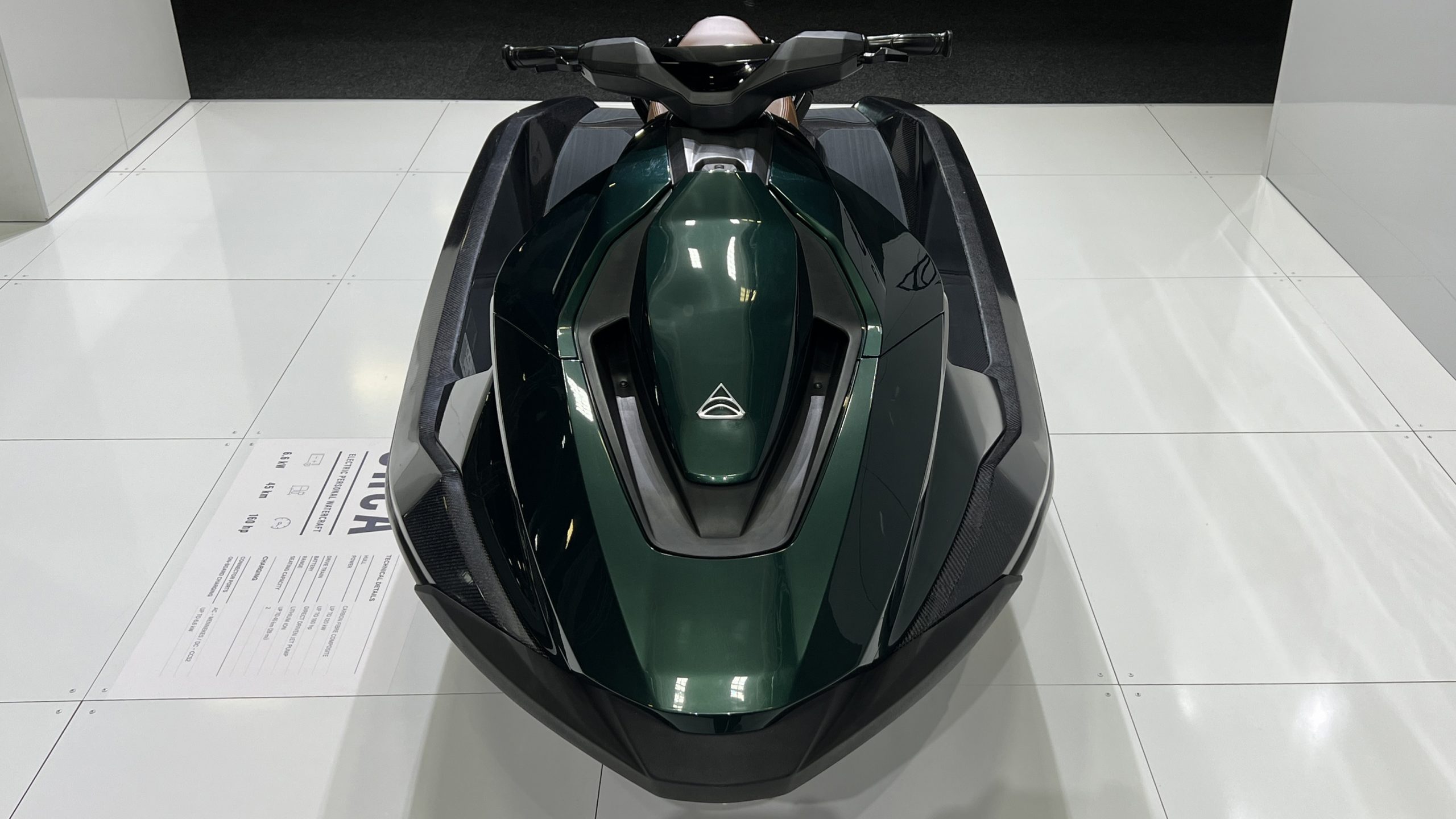
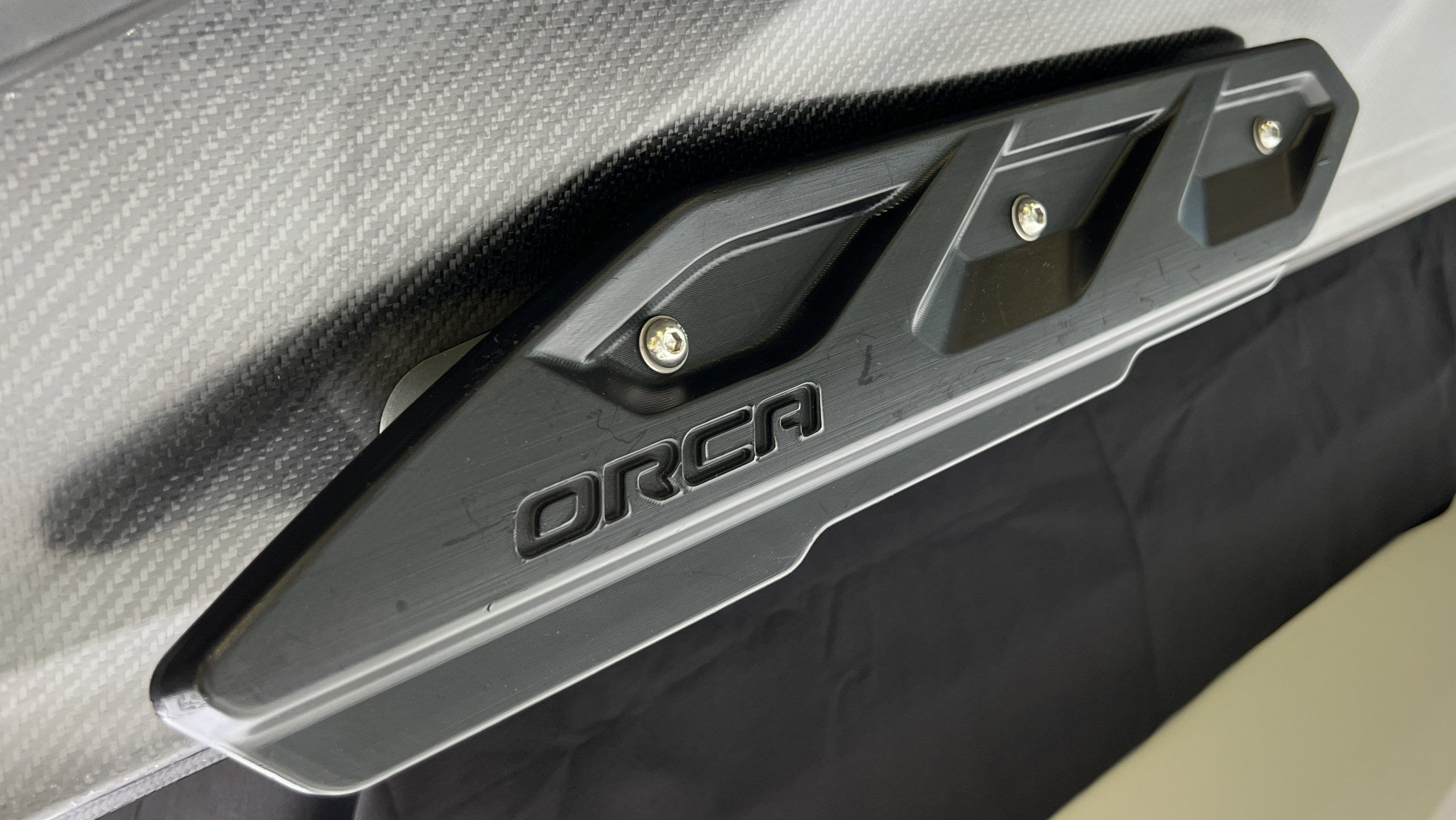
Watercraft Zone understands a number of customers in Australia who placed orders for a Taiga Orca plan to use it as a tender for a larger boat.
Part of the appeal: the convenience of recharging the Taiga electric Jet Ski on board, rather than needing to refuel a runabout.
In addition to ironing out any teething problems with the Taiga electric Jet Ski itself, the process of online sales and customer deliveries also needs to be bedded down for Australia.
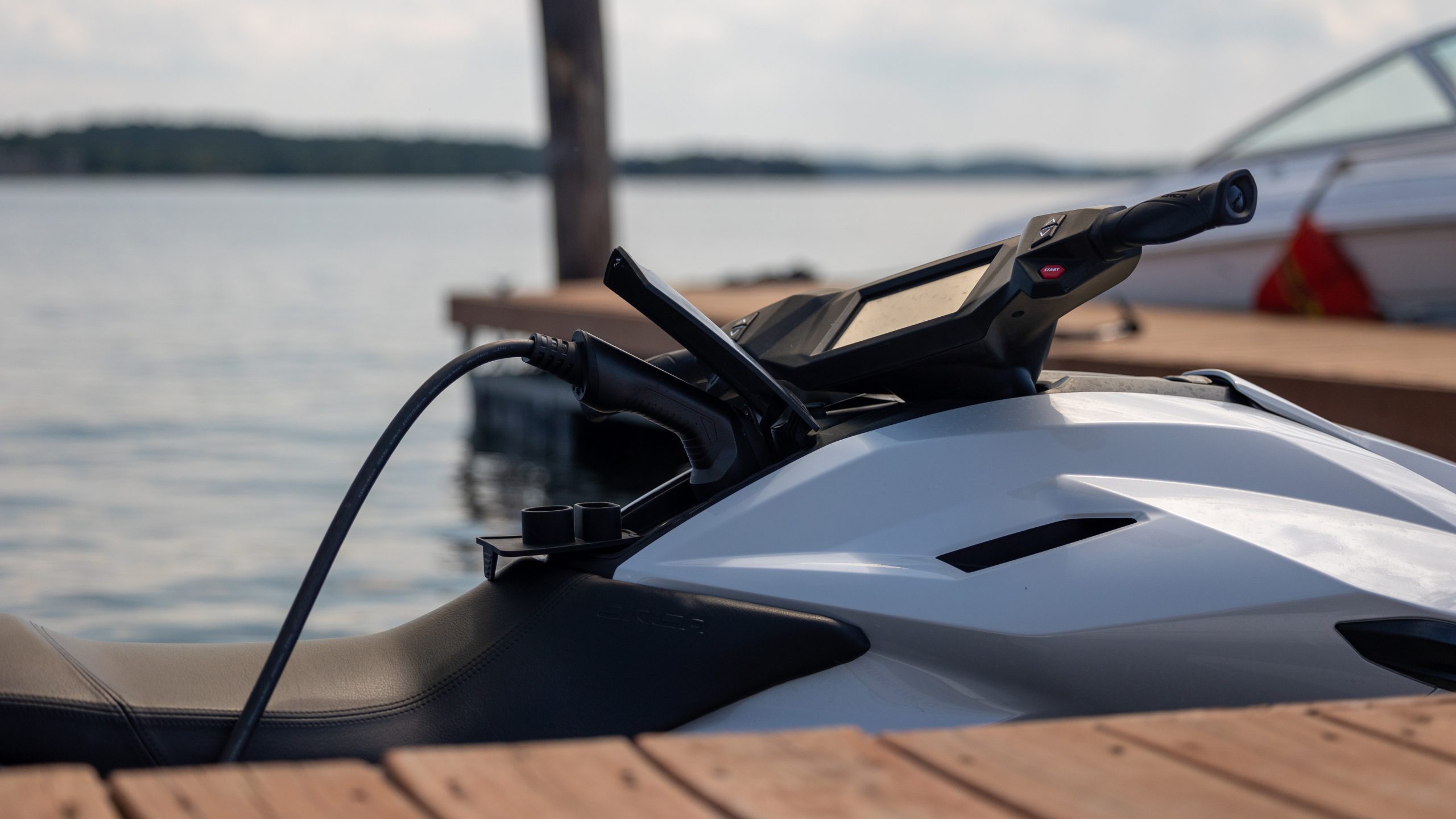
In the US, Taiga has a fixed-priced, online sales business model but appoints independent outlets to handle customer handovers and watercraft servicing.
Such a business structure is possible in North America where it is common for all three major personal watercraft brands – Sea-Doo, Yamaha WaveRunner and Kawasaki Jet Ski – to be sold under one roof at multi-franchise showrooms.
In Australia, the contracts between Sea-Doo, Yamaha WaveRunner and Kawasaki Jet Ski and their respective dealer networks for now prohibit multi-franchise showrooms under one roof.
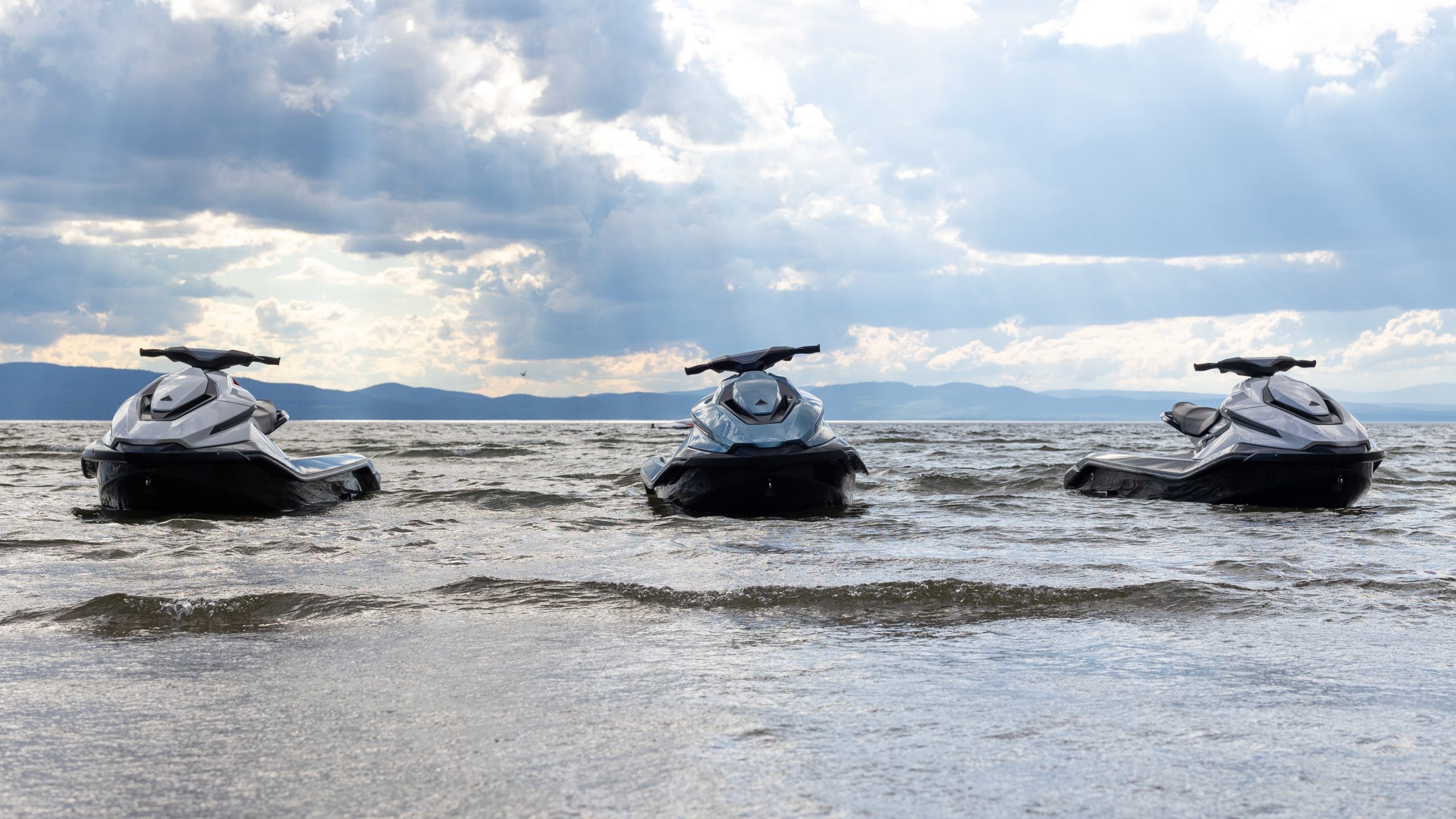
As reported by Watercraft Zone last year, three versions of the Taiga electric Jet Ski will initially be available.
The display model sent to Australia for the 2022 Sydney Boat Show was the top-of-the-range Taiga Orca Carbon edition, which has a carbon-fibre top deck and a composite hull.
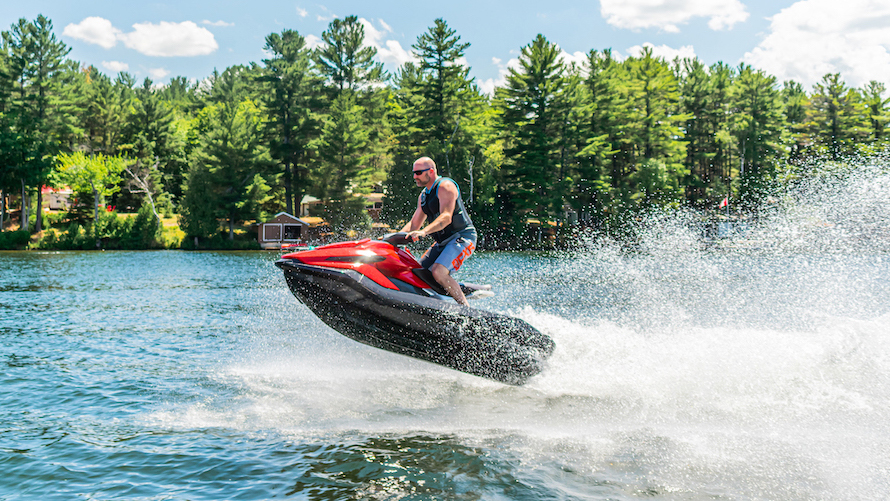
Two other models in the Taiga Orca range – the Sport and Performance editions – are constructed from a plastic top deck and composite hull.
All three Taiga Orca models share the same body shape and hull design, 23kWh battery pack, electric motor, and jet pump – but there are two power outputs available.
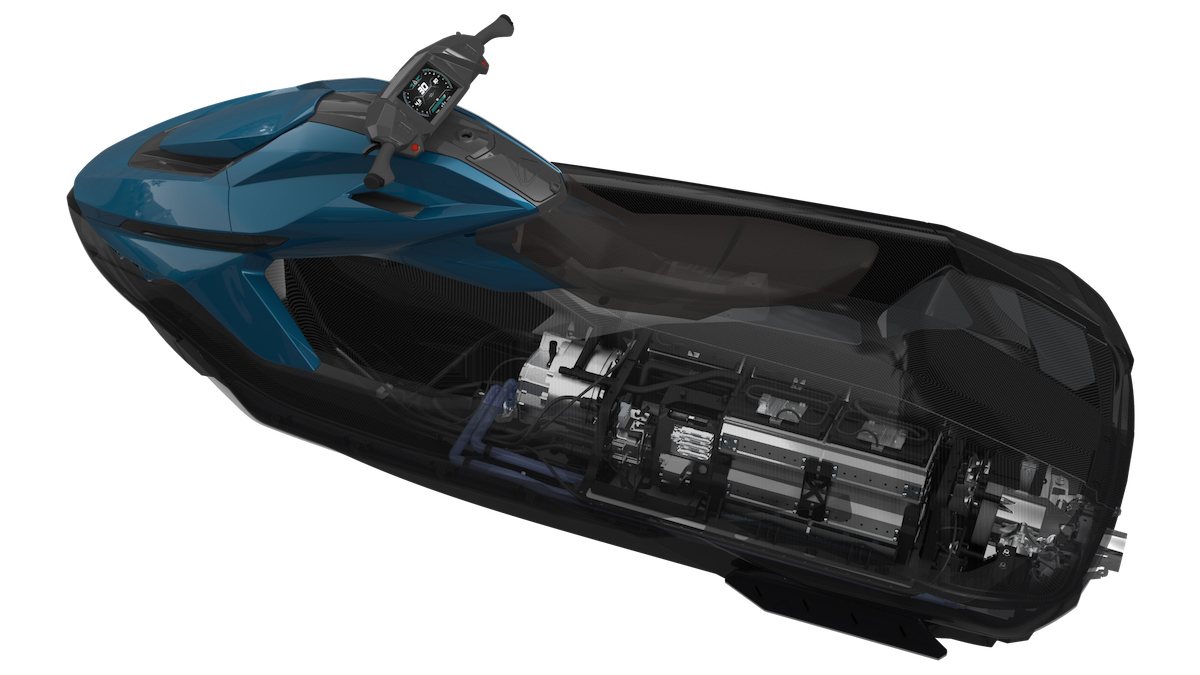
The cheapest model in the range, the Taiga Orca Sport, has a modest output of 90hp (67kW).
The mid-grade Taiga Orca Performance and flagship Taiga Orca Carbon both have a claimed peak output of 160hp (120kW).
The power output of each model is determined via software rather than hardware changes.
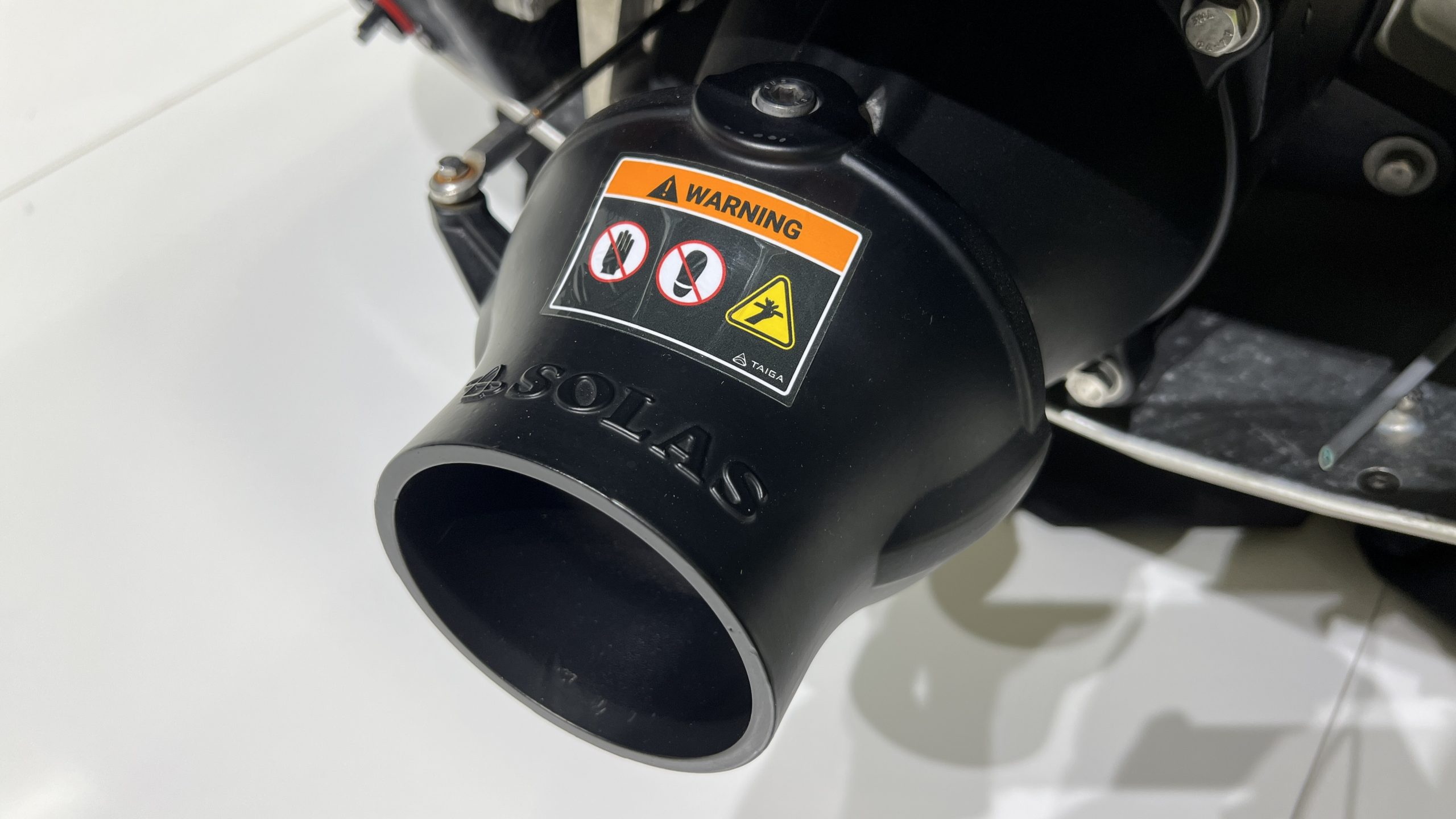
Rather than partner with established personal watercraft brands such as Sea-Doo, Yamaha WaveRunner or Kawasaki Jet Ski, Taiga has created its own designs.
Based on dimensions published by the Canadian firm, the Taiga Orca is about the same size as a Sea-Doo Spark Trixx or a Yamaha EX – the entry models of both established brands.
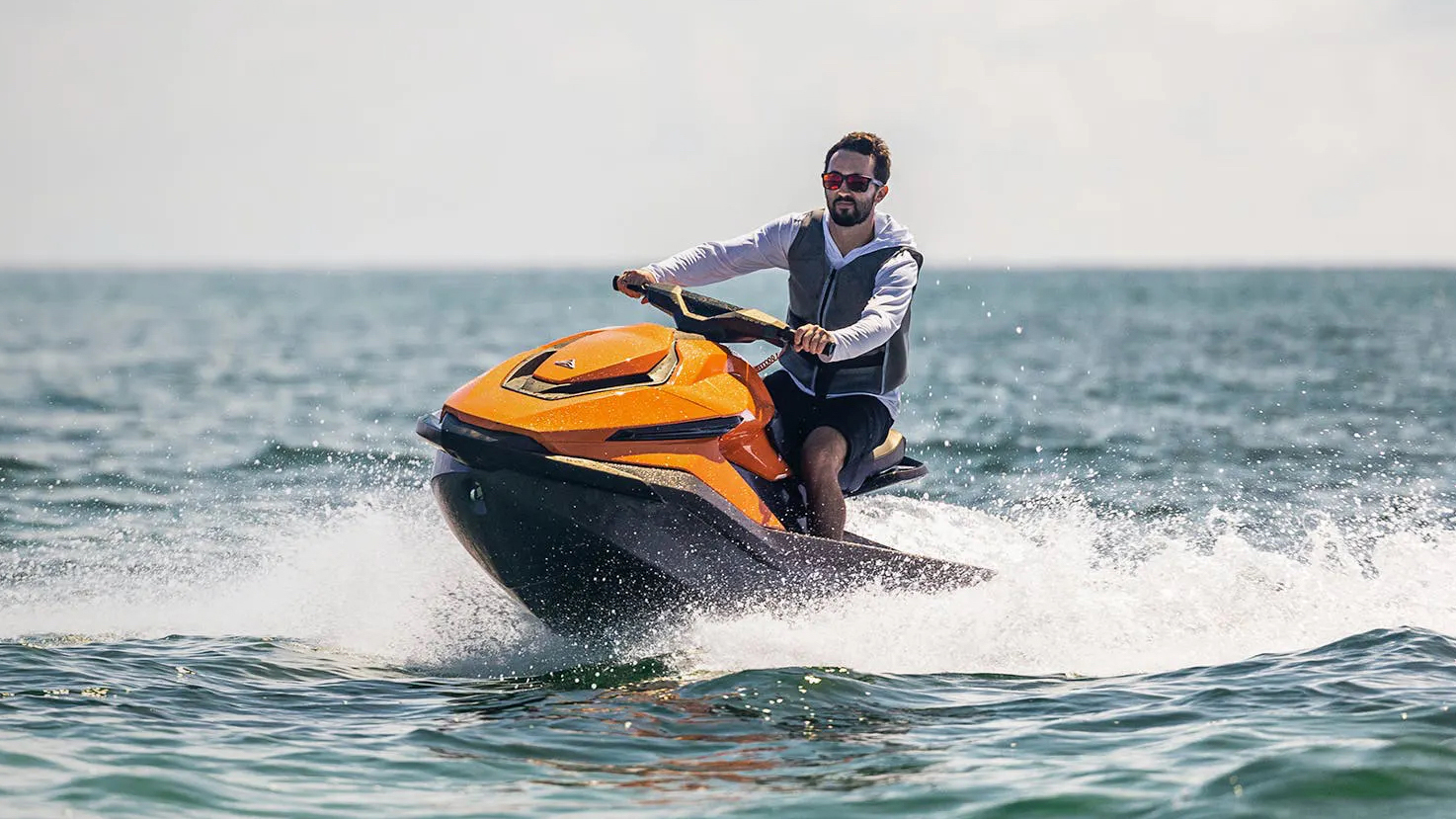
Prices are yet to be confirmed for Australia, however as a guide in the US the Taiga Orca Sport costs from $US17,490 ($AU25,000), the Taiga Orca Performance costs from $US19,490 ($AU28,000), and the flagship Taiga Orca Carbon costs from $US26,500 ($AU38,000).
The above prices exclude additional costs such as a Jet Ski trailer and registration fees.
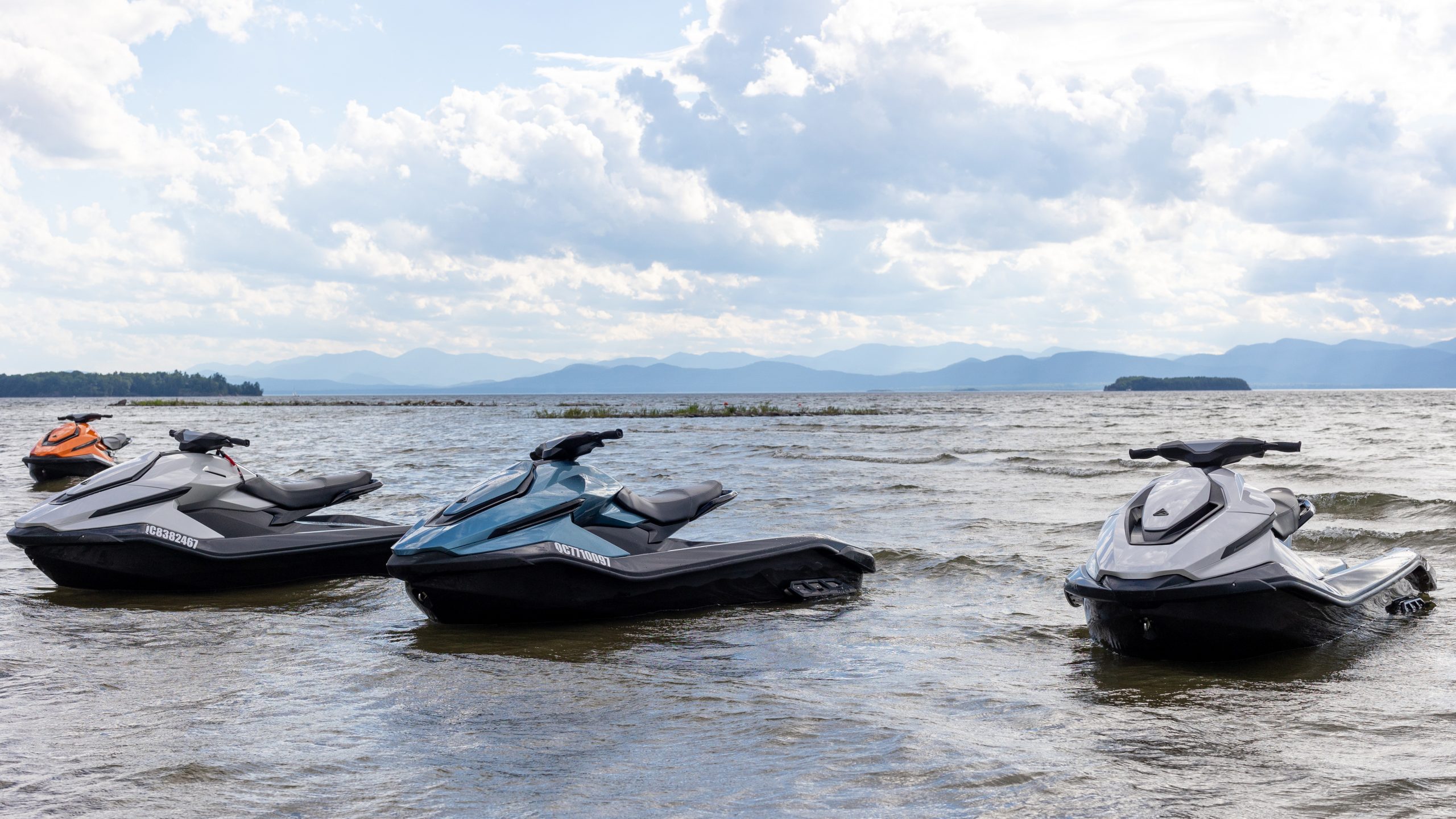
Last year, a representative for Taiga head office in Canada told Watercraft Zone in a phone interview Taiga would launch in Australia with direct online sales supported by local independent showrooms.
Under the plan, Australian customers would order their Taiga electric personal watercraft online via the company’s website at non-negotiable fixed prices.
To order a Taiga Orca Sport or a Taiga Orca Performance, Australian customers must place a $US100 deposit. The top-line Taiga Orca Carbon requires a deposit of $US1000.
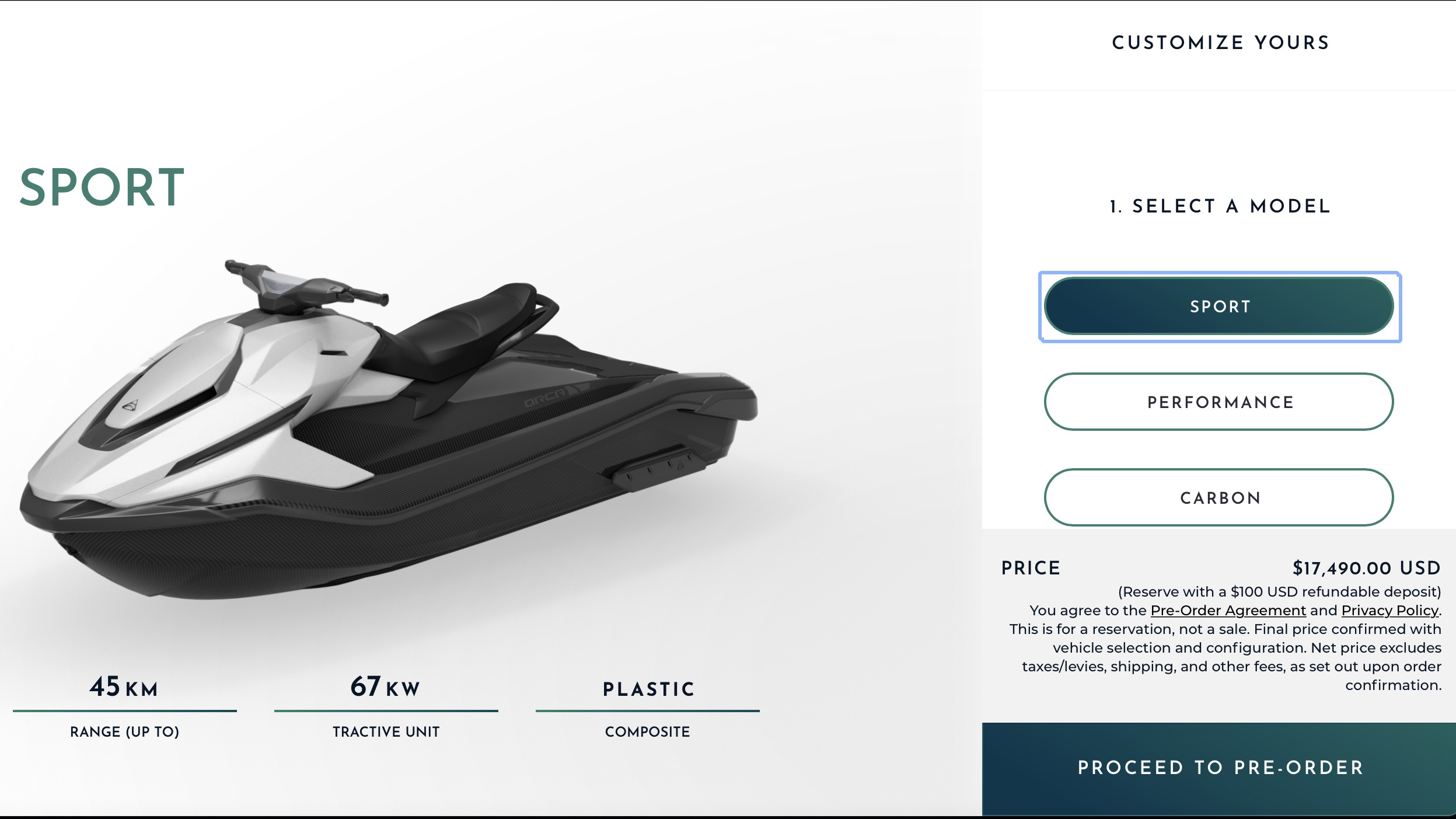
Prices are listed as a guide only, and are subject to change closer to the production date. However the deposits are fully refundable if the RRP stretches beyond the customer’s budget – or if customers walk away from the deal due to delivery delays.
As previously reported, Taiga says the Orca requires minimal maintenance – there are no oil changes, filter swaps, or spark plugs to replace – however jet pumps will likely still need to be checked for wear.
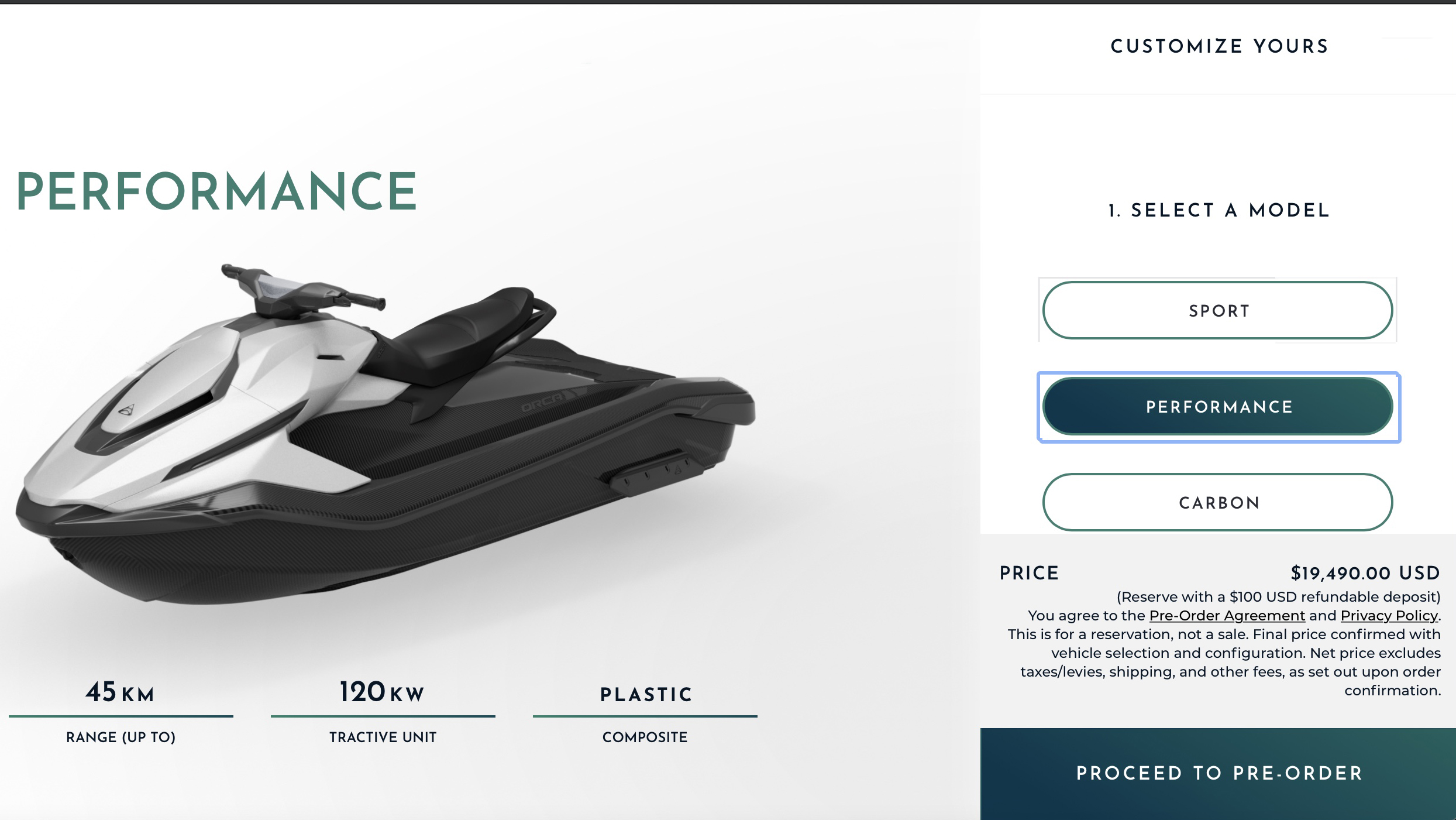
The capacity of the sealed lithium-ion battery pack is listed at 23kWh. When the watercraft is not in use, Taiga says it takes five years for the energy storage to expire after the battery has been fully charged.
Taiga says the Orca can be fully recharged overnight – in about eight hours – via a 240V household power socket, or to 80 per cent capacity in either 30 minutes or 90 minutes depending on which type of fast-charger is used.
In the US, Taiga advises overnight charging takes up to 14 hours based on 120V household power outlets.
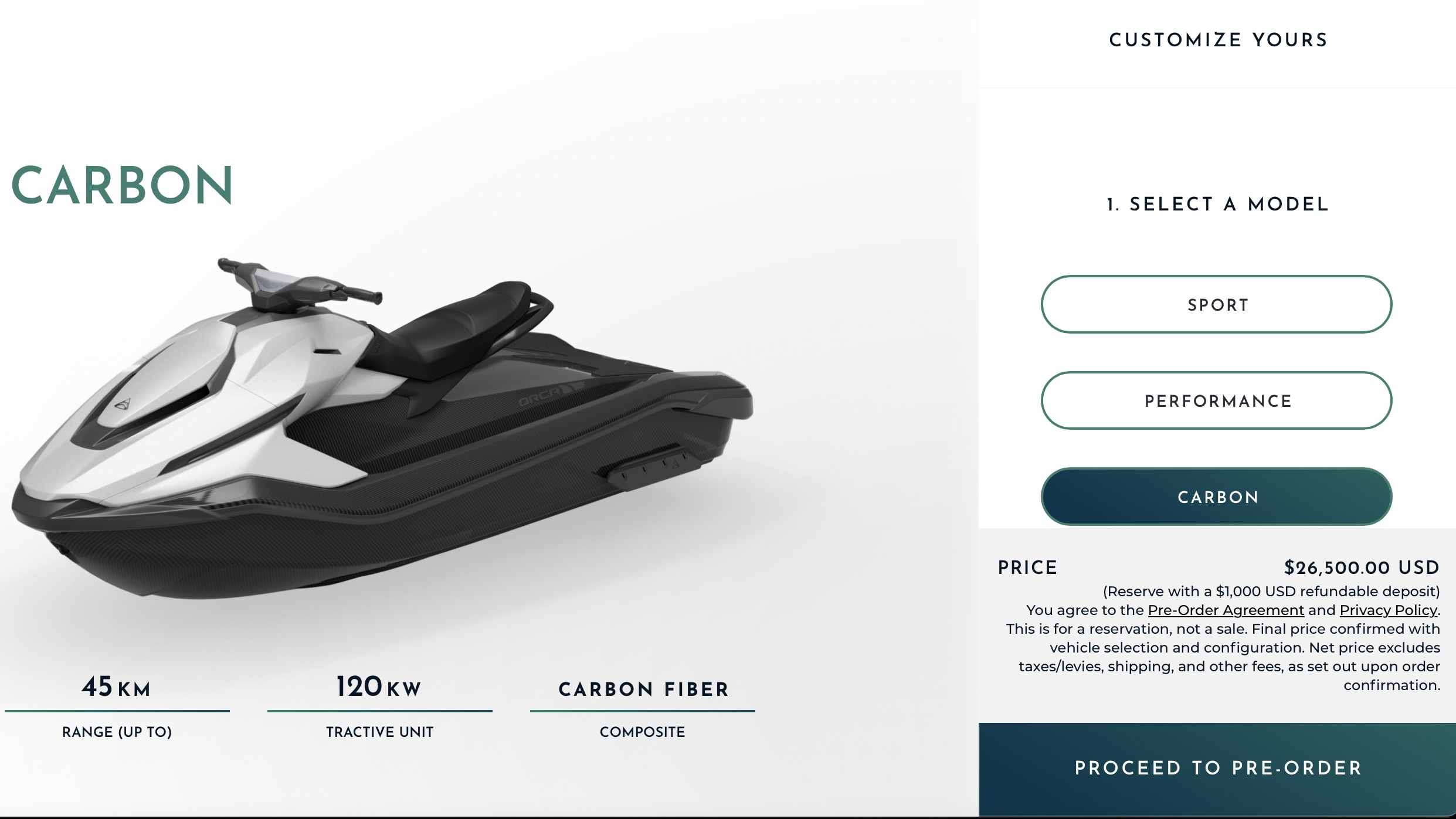
Warranty on the construction of the watercraft is listed at one year, however the battery pack and electric motor have three-year warranty coverage.
In Australia this compares to Sea-Doo’s standard two-year coverage (with occasional three-year warranty promotions), Yamaha WaveRunner’s two-year warranty (with three-year coverage included on watercraft serviced within the Yamaha dealer network), and Kawasaki Jet Ski’s industry-leading five-year coverage.
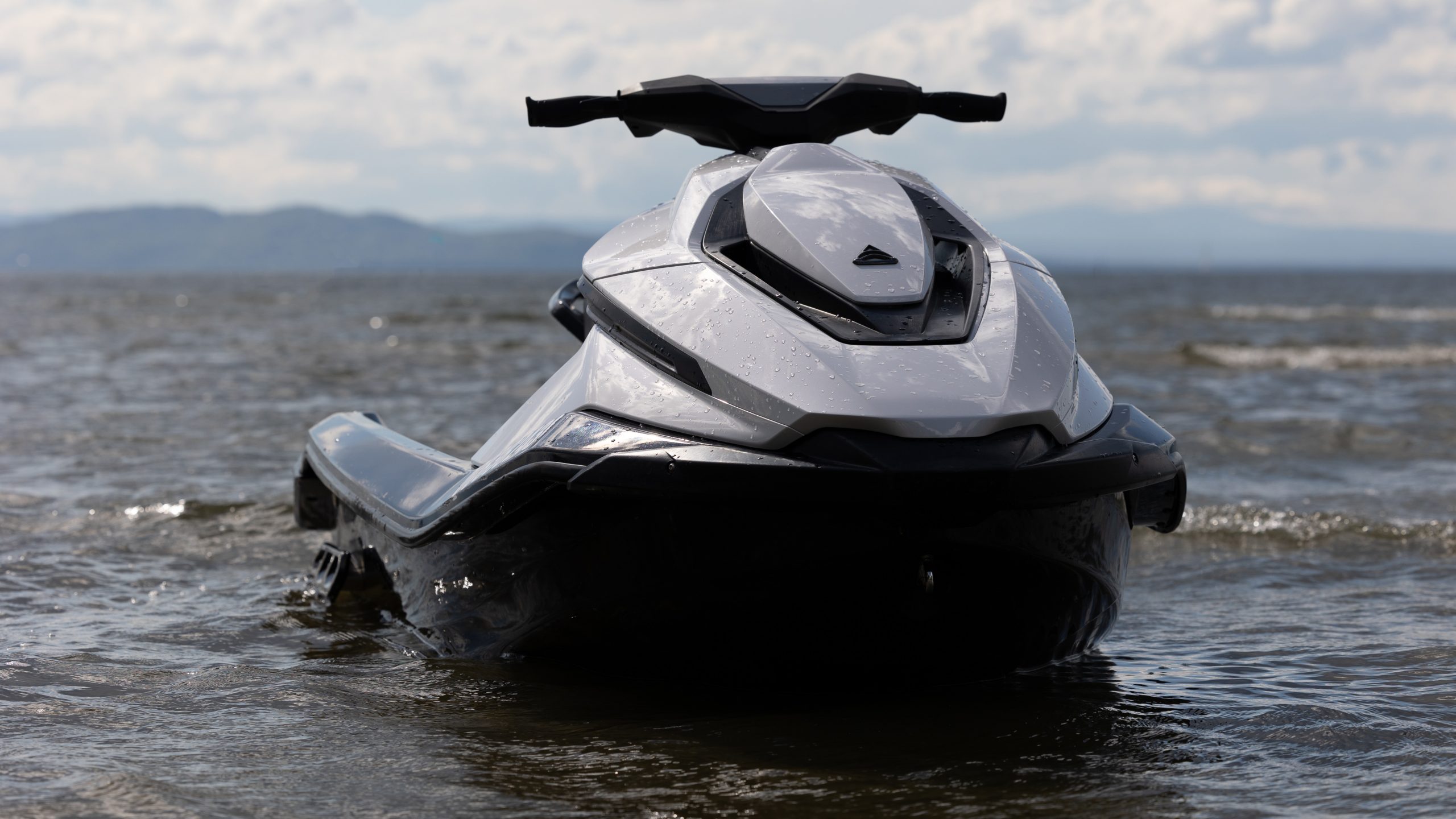
As previously reported, Taiga is an electric powersports start-up founded in 2015 by three engineering graduates of McGill University in Montreal.
Taiga started with a range of electric snowmobiles and had been developing an electric Jet Ski prior to the pandemic, until global lockdowns and production interruptions at parts suppliers delayed the program’s progress.
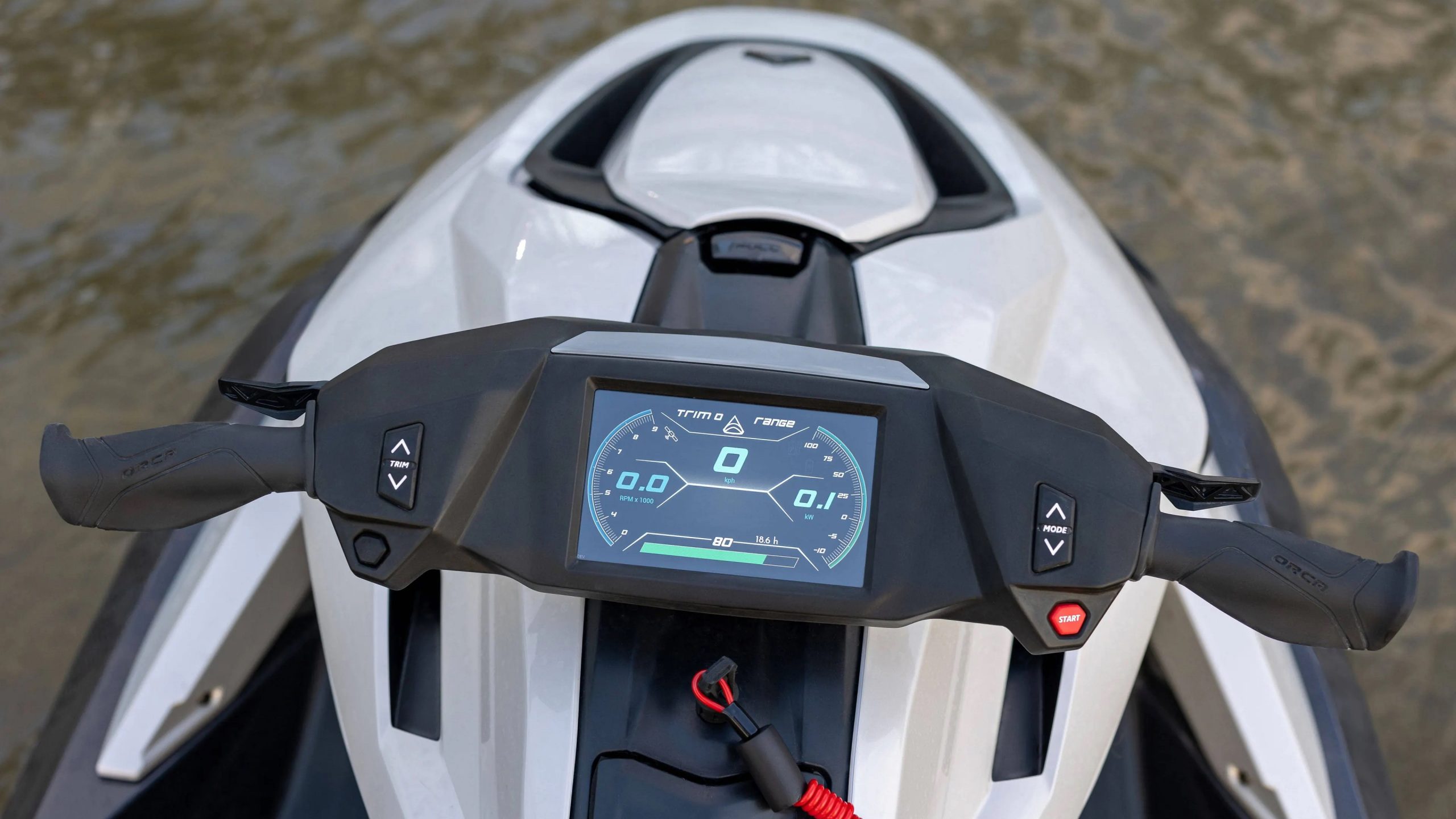
However, the Taiga Orca program resumed as COVID restrictions eased.
In mid-July 2022, Taiga announced it had started full-scale production in its Canada factory ahead of the first customer deliveries in North America in the last few months of the year.
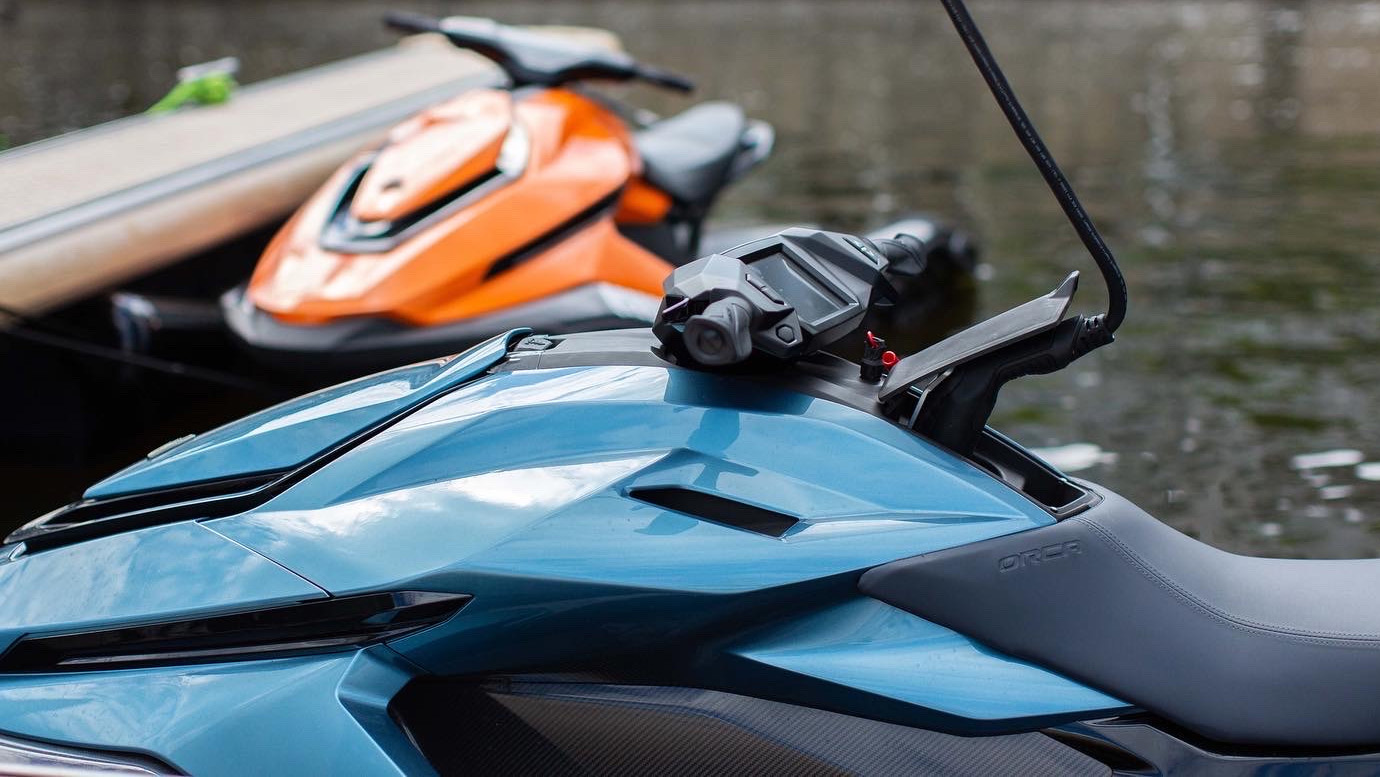
When asked about concerns regarding electrocution or fire risk given that a high-capacity battery pack is being used in a small personal watercraft – which are known to get wet engine bays despite the widespread use of seals, a Taiga head office spokesman said the battery pack and electric motor are sealed units and do not pose a safety risk to riders.
The global Taiga representative said there were no plans to introduce a battery-swap system for faster top-ups.
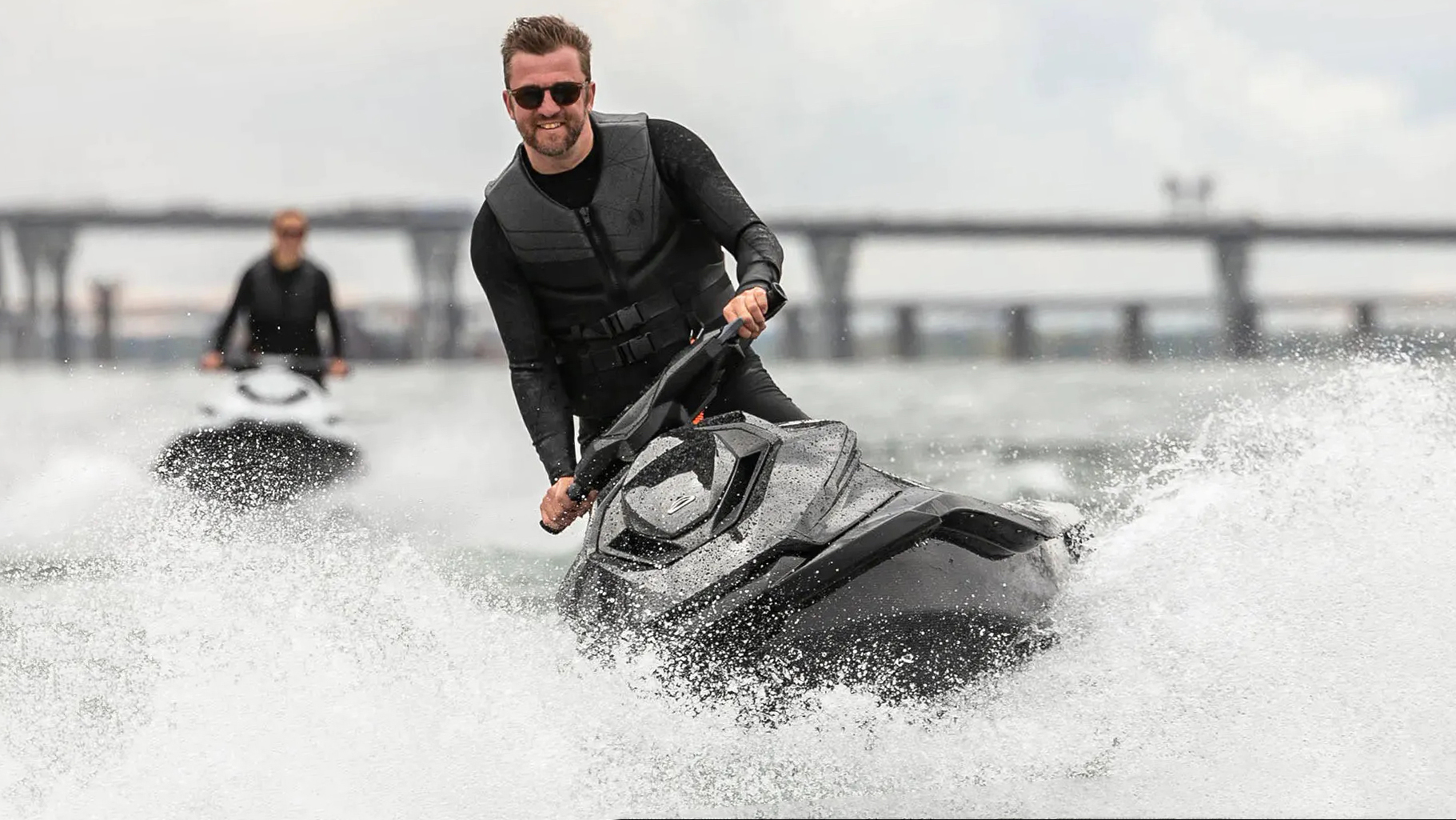
Limited technical information is available on the Taiga Orca, however data shows the personal watercraft is similar in size to the Sea-Doo Spark Trixx and Yamaha EX WaveRunner, both of which are entry models.
The weight of the battery pack makes the Taiga Orca much heavier than its petrol-powered rivals.
The Taiga Orca Carbon weight is listed at 335kg. This compares to a dry weight of 249kg for a Yamaha EX or 199kg for a Spark Trixx three-seater.
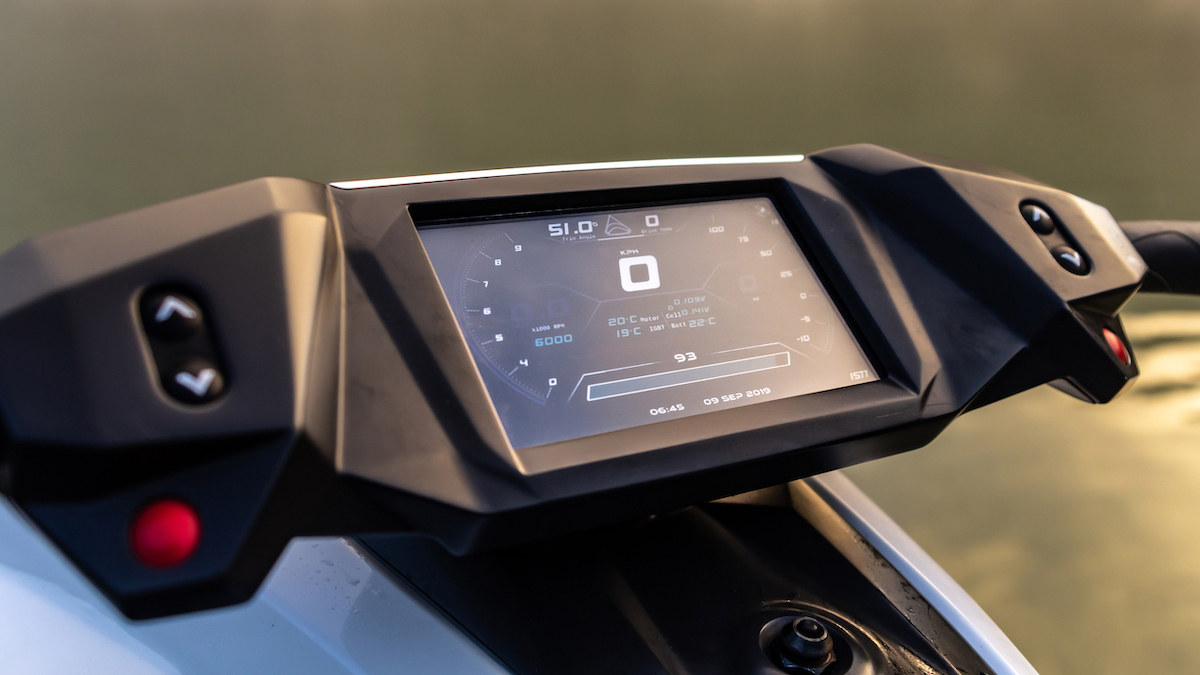
The quoted maximum riding range of 45km or about two hours appears to be modest by class standards.
The Yamaha EX with its standard 50-litre fuel tank can easily run for in excess of 100km, depending on conditions.
The Spark Trixx with its standard 30-litre fuel tank can comfortably exceed a riding distance of 70km, depending on conditions.
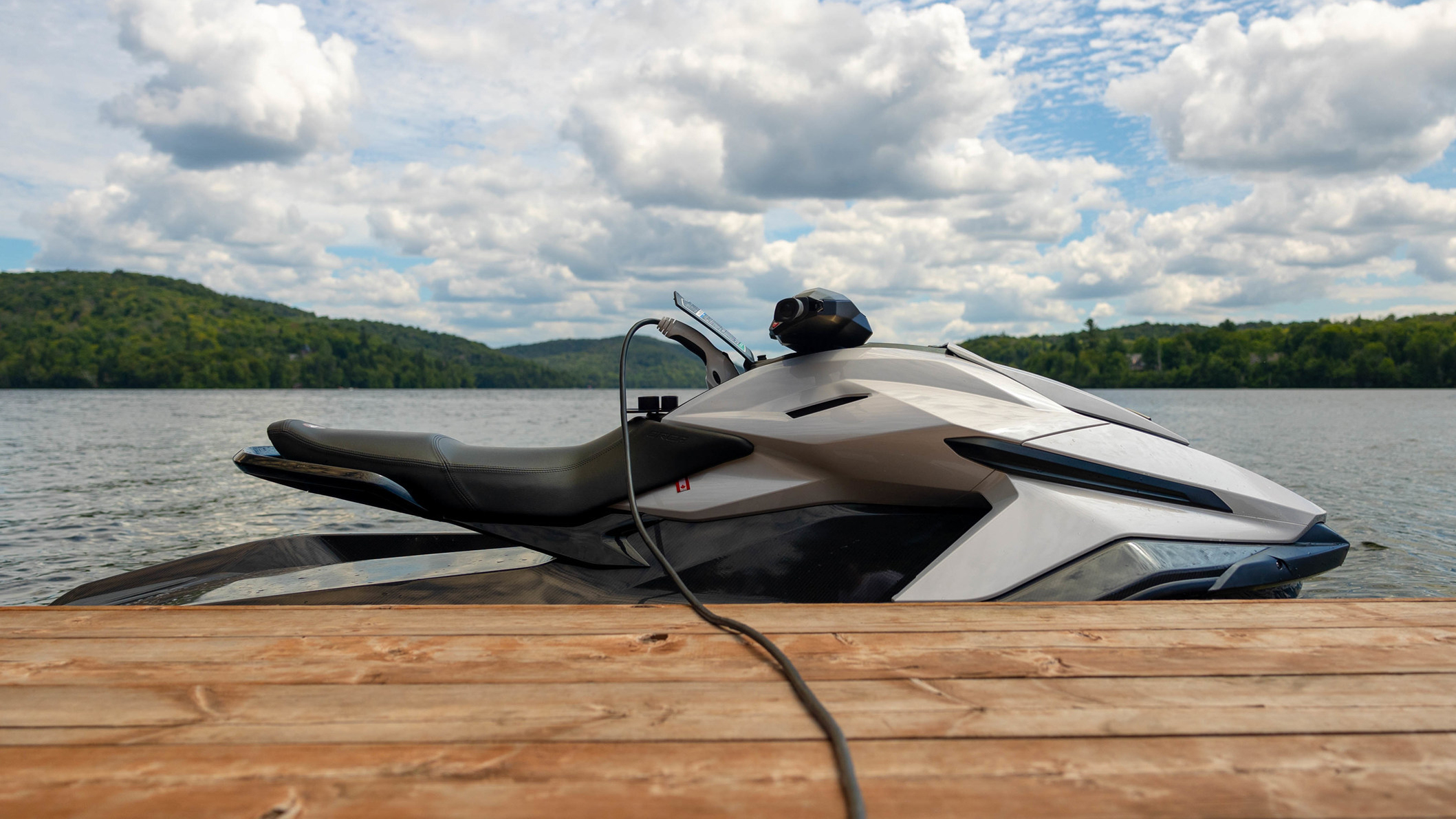
Although these Sea-Doo and Yamaha vessels are available with three-seat capacity, all Taiga Orca models for now are two-seaters.
It is unclear at this stage if Taiga will expand its electric watercraft line-up to include a larger three-seater Jet Ski.
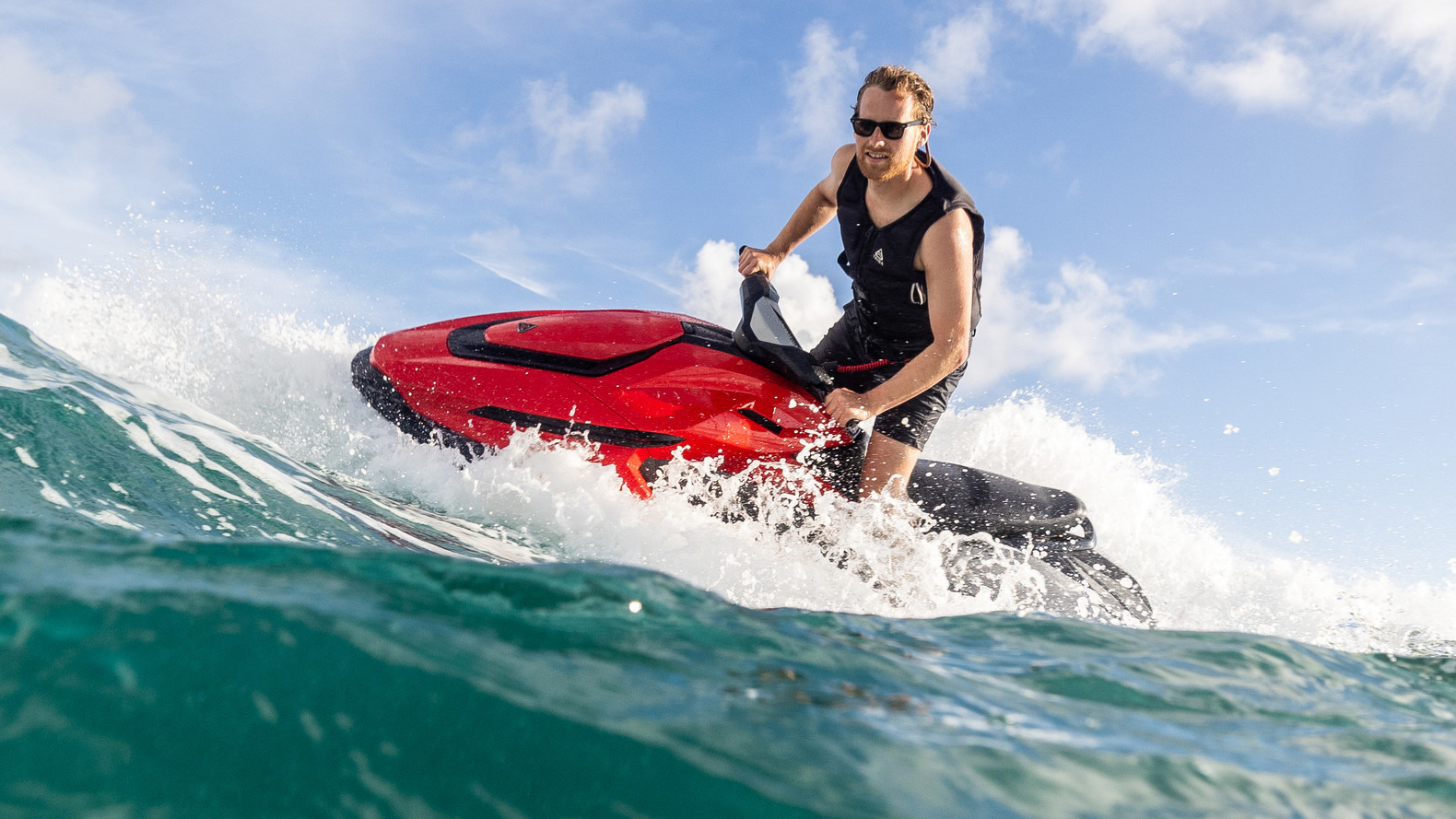
While most personal watercraft companies do not give customers a choice of colour schemes across most models, the Taiga Orca is available with a choice of seven colour options.
All models come with a 7.0-inch high-resolution digital display as standard, modest storage space in a glove box and the bow, and the craft has adjustable trim for the raise or lower the nose, depending on conditions.
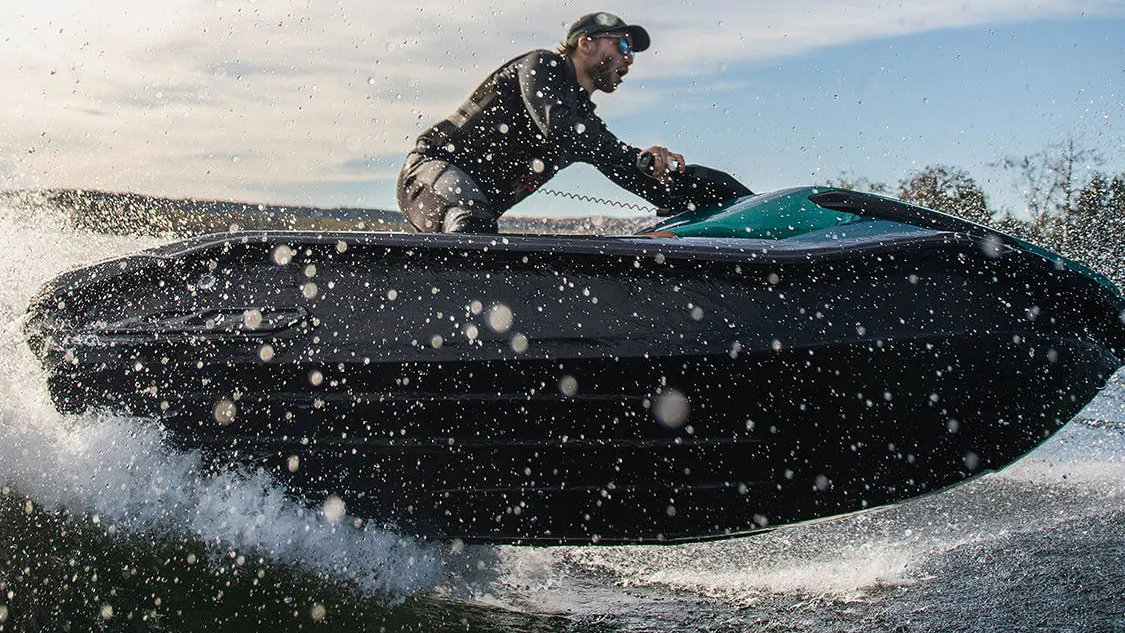
Taiga says the throttle response of the electric motor is 1 millisecond, though there is no acceleration claim, only a top speed estimate of up to 100km/h for the top-of-the-range model.
Meantime, Sea-Doo and Yamaha WaveRunner have experimented with the idea of an electric watercraft, through for now Sea-Doo appears to have progressed furthest with its project.
Sea-Doo has teased an electric personal watercraft for a number of years, based on its popular GTI series.
Industry insiders say an electric Sea-Doo will be in showrooms by the end of 2025; Yamaha and Kawasaki are yet to foreshadow any such plans.
Taiga Orca Sport
- Price: $US17,490 plus trailer and registration fees ($AU25,000)
- Power: 90hp (67kW) electric
- Range: 45km, two hours (estimated)
- Battery capacity: 23kWh
- Construction: Plastic deck and composite hull
- Drive modes: Range and Sport
- Top speed: 80km/h (estimated)
- Weight: 365kW (estimated)
- Warranty: 1 year on construction, 3 years on electric motor and battery pack
Taiga Orca Performance
- Price: $US19,490 plus trailer and registration fees ($AU28,000)
- Power: 160hp (120kW) electric
- Range: 45km, two hours (estimated)
- Battery capacity: 23kWh
- Construction: Plastic deck and composite hull
- Drive modes: Range, Sport and Wild
- Top speed: 90km/h (estimated)
- Weight: 365kg (estimated)
- Warranty: 1 year on construction, 3 years on electric motor and battery pack
Taiga Orca Carbon
- Price: $US26,500 plus trailer and registration fees ($AU38,000)
- Power: 160hp (120kW) electric
- Range: 45km, two hours (estimated)
- Battery capacity: 23kWh
- Construction: Carbon-fibre deck and composite hull
- Drive modes: Range, Sport and Wild
- Top speed: 100km/h (estimated)
- Weight: 335kg
- Warranty: 1 year on construction, 3 years on electric motor and battery pack
Taiga Orca dimensions: how it compares
| Taiga Orca | Sea-Doo Spark Trixx | Yamaha EX | |
| Length | 2905mm | 3050mm | 3140mm |
| Width | 1040mm | 1180mm | 1130mm |
| Height | 1156mm | 1070mm | 1150mm |
| Dry weight | 335kg | 199kg | 249kg |
MORE: 2022 Sydney Boat Show Jet Ski coverage
MORE: Everything we know so far about the new electric Sea-Doo
MORE: Australian boat shop experiments with electric motors in old Jet Skis
MORE: All our Sea-Doo coverage in one click
MORE: All our Yamaha WaveRunner coverage in one click
MORE: All our Kawasaki Jet Ski coverage in one click
MORE: All our news coverage in one click
MORE: Follow us on Facebook
MORE: Follow us on YouTube
